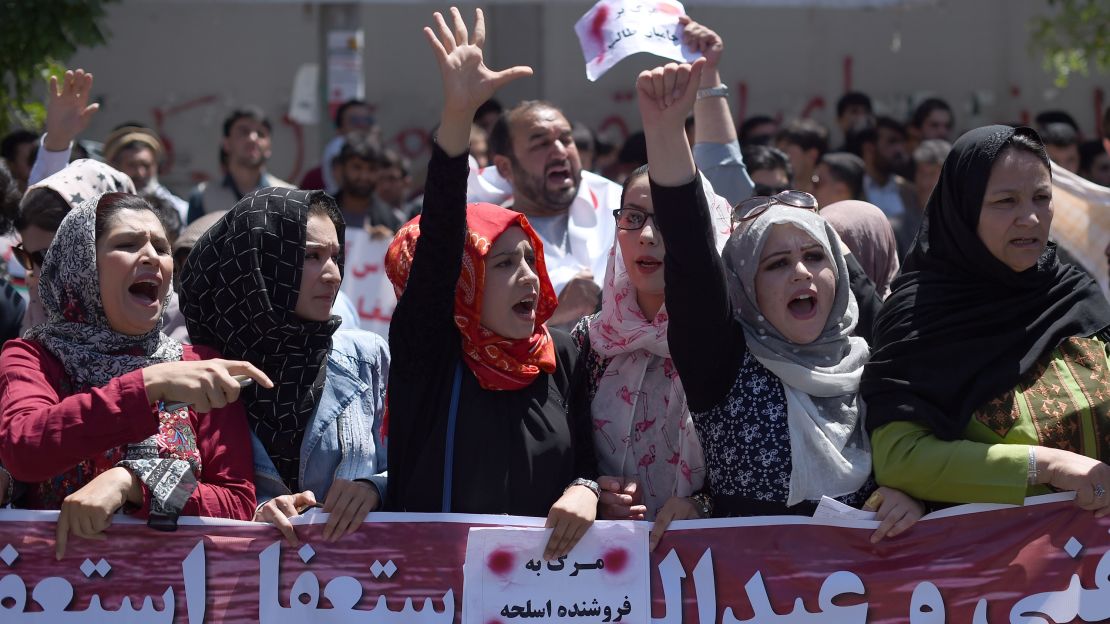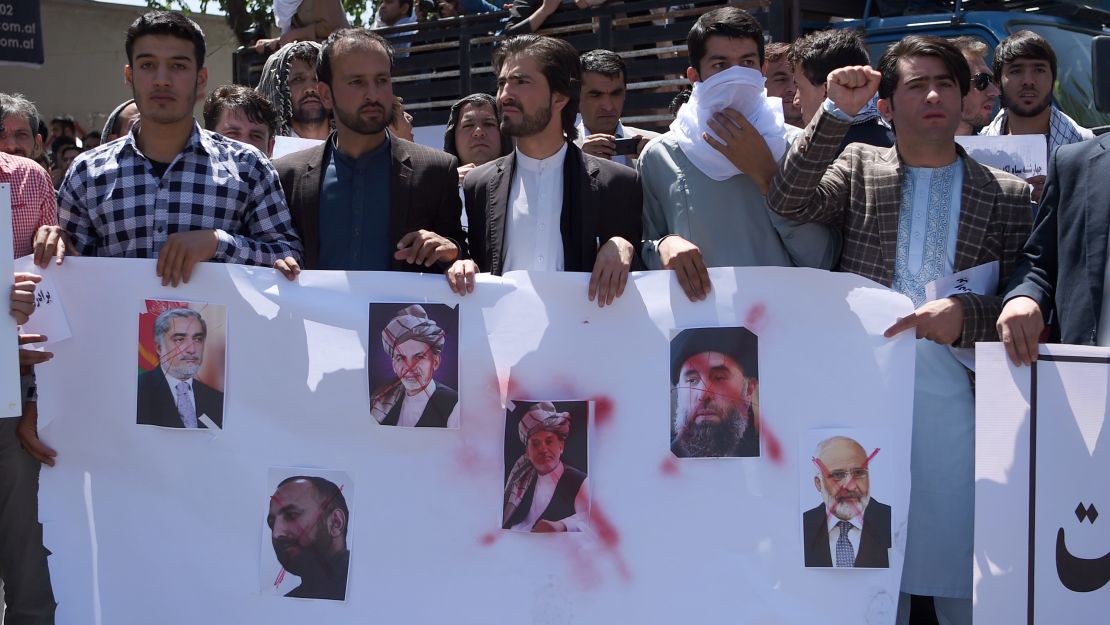Story highlights
NEW: At least three deaths reported
Angry protesters want government to step down
In this country that’s seen so much death, the tears alone are no longer enough.
People here want answers.
Two days after a vicious truck bomb tore through Kabul’s diplomatic zone – the explosion so powerful it caused concrete blast walls to come crumbling down – protesters gathered in at least two separate locations in the city, demanding the resignation of President Ashraf Ghani’s government.
Eyewitnesses told CNN the demonstrations on Friday turned violent as Afghan police fired live bullets into the air in an attempt to disperse the crowds, fearing they may attempt to approach the Presidential Palace.

Gunfire could be heard in periodic, thunderous bursts in the capital, while live pictures on local news showed protesters throwing stones at the police.
Casualties have been reported and the numbers vary.
Najib Danish, the spokesman for the Ministry of Interior, said at least three people have been killed and nine people were injured. Five of those hurt were police officers.
Kabul’s emergency hospital sent a text saying it treated 15 patients, five of whom died. Four others were admitted and six were treated and released, the hospital said.
Danish said Afghan security forces took “necessary steps for the safety of protesters,” while Afghan police forces used water cannons in some places to control the crowds.
One of the demonstrators, 34-year-old Mohammad Musa, described the protesters’ mounting frustrations, saying they simply “cannot tolerate the current situation anymore.”
“Every day we lose dozens of our compatriots in different parts of the country in different incidents,” Musa said. “If the National Unity Government leaders cannot bring peace to our country, then they should resign and let others (do it).”
“We won’t stop our protest until we get peace,” he said.

A day earlier, CNN spoke to Kineshka Nasiry, who had organized a protest that attracted about 100 demonstrators. He took the same view, telling CNN he is “fed up” with people being killed here.
“Make them resign, the security in charge… Once they resign, the new security system should be those people who have the knowledge, the experience, to improve the security system,” he said, adding that protesters will not stop their marches.
Wednesday’s bombing is just the latest in Afghanistan’s tale of tragedy.
Kabul has long been a labyrinth of security checkpoints and concrete barriers.
Daily life, commerce, and diplomacy are typically conducted behind walls, with many diplomats and foreign aid workers no longer allowed to leave their fortified compounds.
The once-common military convoys that used to shuttle dignitaries and embassy staff from one walled compound to another are now a rare sight, with many instead choosing to video conference or, in limited cases, use helicopters to avoid becoming a target on the ground.
Biggest vehicle attack in Kabul since 2001
The routine of daily life was shattered on Wednesday, when a truck driver detonated a sewage tanker filled with explosives outside a checkpoint near the German Embassy. Some estimates suggest the tanker may have been filled with more than 1,500 kilograms (more than 3,300 lbs) of explosives, making it the biggest vehicle attack in Kabul since the fall of the Taliban in 2001.
Even in a city grown used to attacks, the scale and sheer devastation of this one was particularly gruesome. It took place in a busy part of the city at the height of the morning rush hour. Body parts scattered across streets with blood pooling in the gutters. The blast itself was felt many miles away, shattering windows and lives – equally and with reckless abandon.
At least 90 people were killed and more than 460 were wounded in the blast, according to Health Ministry spokesman Ismail Kawosi. There has been no claim of responsibility.
Afghanistan’s intelligence service, the National Directorate of Security, issued a statement attributing blame to the Haqqani Network, a Taliban-affiliated group in Pakistan. It alleged the group had received help from ISI, the Pakistani intelligence service.
But Pakistani Foreign Ministry spokesman Nafees Zakaria rejected what he called the “baseless allegations,” saying the “accusatory approach is unhelpful towards efforts for peace.”
The Haqqani Network has not responded to the accusation from Afghanistan’s intelligence service or claimed responsibility for the attack. The Taliban have denied responsibility for the blast, and ISIS has remained silent on the issue.
CNN’s Joe Sterling and Journalist Aleem Agha contributed to this report








